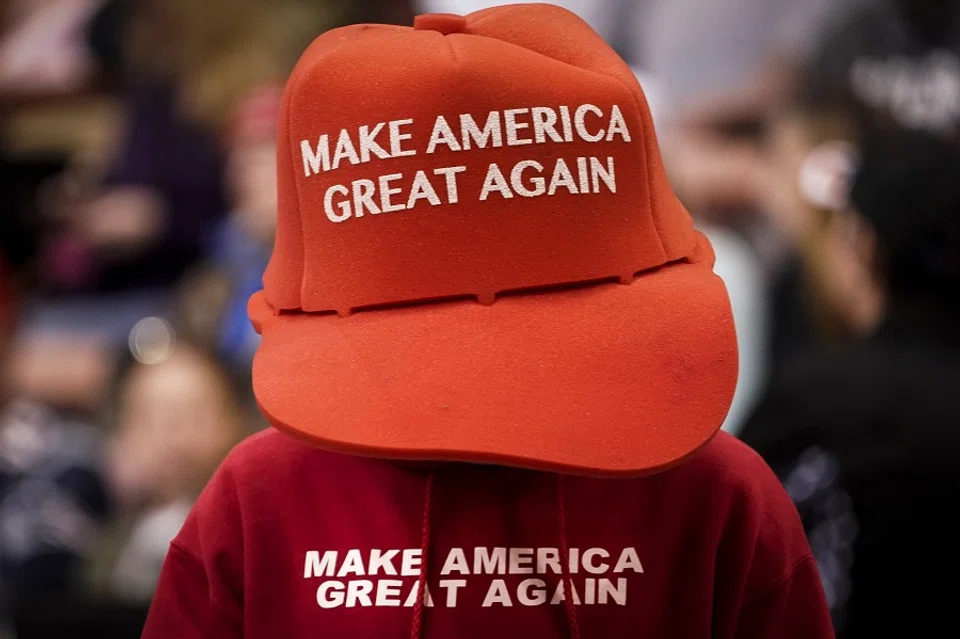Covid-19: US needs to revive its manufacturing industry and rebuild itself
US-based academic Hu Hao warns that the US needs to diversify its supply chains and revive its manufacturing industry, particularly in the medical sector, if it does not wish to let its major competitor China have undue leverage during times of emergency and beyond.

Xinhuanet published an article titled "With Reason, the World Should Thank China" (《理直气壮,世界应该感谢中国》) on 4 March 2020. According to the article, the US gets its masks produced in and imported from China. Should China impose a ban on mask exports to the US, the latter could possibly plunge into a severe shortage of masks, and lose its most basic protective gear. Additionally, medicine in the US is also mainly imported, and some of it comes from the UK. However, the production bases of medicine imported from the UK are located in China, which means that over 90% of the US's imported medicine are again tied to China. In other words, should China announce the need to prioritise medicine for domestic use and inhibit exports, the US could fall into Covid-19 "hell".
The fact is, however, mutual trust is lacking between the two powers. At present, public opinion in China seems to be on the side of pushing the blame to the US instead, even alleging that the virus had originated from the US and that the US owes China an apology.
The specter of such a scenario exposes how vulnerable the US's manufacturing industry is. It is almost as if China has the means to control a major part of the US's healthcare system. China takes the leading position in the market for raw ingredients of medicinal drugs, and virtually all the chemical compounds needed to produce the drugs for high blood pressure, cancer, and Alzheimer's disease, comes from China. The situation is the same for key components in medical apparatuses such as CT scanners, X-ray machines, and ultrasound equipment. Currently, over 95% of the US's supply of antibiotics are produced in China. It seems like China, a major global competitor of the US, has monopolised the world's most important drug, and this severely threatens the national interests of the US.

Theoretically speaking, China is able to break the supply chain of basic drugs, and put the US in the dire position of not being able to heal from a small wound infection, and China is well aware of this ability as well. Nine years ago, former US President Barack Obama predicted a link between China and the next global pandemic, and had claimed that China would help the US. He said then that the US has "a partner in addressing issues like climate change or a pandemic" and that he "absolutely believe[s] that China's peaceful rise is good for the world and it's good for America". The fact is, however, mutual trust is lacking between the two powers. At present, public opinion in China seems to be on the side of pushing the blame to the US instead, even alleging that the virus had originated from the US and that the US owes China an apology.
The US is in need of a modern "Marshall Plan" to rebuild its manufacturing industry. The crucial starting point lies in gaining self-sufficiency in the medicine and equipment needed in the fight against Covid-19, followed by antibiotics.
Ever since China gained membership into the World Trade Organisation, the US has indirectly helped propel China into becoming "the world's factory" by relocating the bulk of its manufacturing industries to China. Apart from drugs and X-ray machines, computers, phones, robot technology, auto parts and machine tools, as well as aircraft motors and other basic parts, are also manufactured in China. In fact, apart from fossil fuels, China produces almost all of what the US needs. China's control over the US's manufacturing industry poses a real danger to national security and requires a quick response from the US. The US is in need of a modern "Marshall Plan" to rebuild its manufacturing industry. The crucial starting point lies in gaining self-sufficiency in the medicine and equipment needed in the fight against Covid-19, followed by antibiotics.

17 years after SARS, a virus that emerged from China has once again swept the world, and the US has paid a high price as a result. Covid-19 is a product of globalisation, and has also exposed the disadvantages of it. This is also what the pro-China camp in the US political establishment finds hardest to accept. On the contrary, it also affirmed US President Donald Trump's push for bringing production back to the US. At the 2016 Republican National Convention held in Cleveland, Trump said that "Americanism, not globalism, will be our credo". He asserted that America was going to start building and making things again: "All we need to do is start believing in ourselves and in our country again. It is time to show the whole world that America Is Back - bigger, and better and stronger than ever before."
A strong America has to be independent in every aspect to lower risks to a minimum, and truly make America bigger and better than before.
To tackle the Covid-19 pandemic, the US could resolutely choose to employ the Defence Production Act implemented during the Cold War. This act grants the president permission to expand the country's manufacture of key products on the basis of safeguarding national security. In this case, it would be to accelerate the manufacturing of masks and other healthcare equipment. In the long run, however, the US should learn its lesson and reconsider placing its supply chain in a country that is its main competitor, in turn jeopardising national security. Following Trump's statement that "Americanism, and not globalisation, should be its credo", the country should hasten the revival of the manufacturing industry and rebuild itself. A strong America has to be independent in every aspect to lower risks to a minimum, and truly make America bigger and better than before.



![[Photos] Fact versus fiction: The portrayal of WWII anti-Japanese martyrs in Taiwan](https://cassette.sphdigital.com.sg/image/thinkchina/3494f8bd481870f7c65b881fd21a3fd733f573f23232376e39c532a2c7593cbc)

